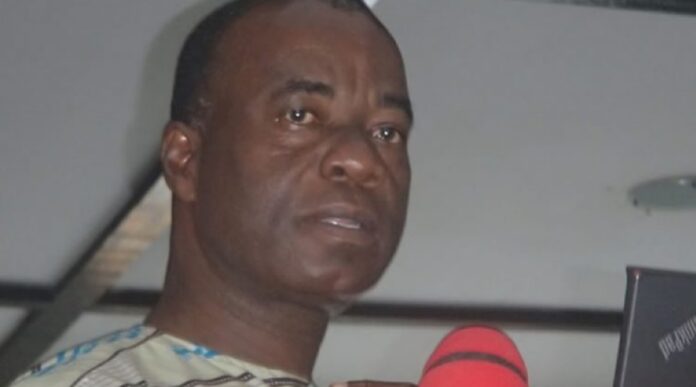MONROVIA – President Joseph Boakai’s declaration, “I can ride a wheelbarrow to go to the mansion, I don’t care but this country we must build it ourselves,” made during an intercessory service on October 6, 2024, struck a chord with many Liberians. However, it comes at a time when the president’s administration faces serious accusations of wasteful spending, particularly following revelations that Commerce Minister Amin Modad allegedly spent $96,000 on a luxury vehicle. This controversy casts a shadow over Boakai’s message of sacrifice and national development.
President Boakai, who has been allocated US$2.99 million in the 2024 national fiscal budget, made these remarks as he returned from international engagements aimed at fostering foreign investment. His statement at the church service, emphasizing his practical and humble approach to leadership, was met with applause from the congregation, many of whom have grown weary of the extravagant lifestyles of government officials. However, this rhetoric stands in stark contrast to the actions of his own ministers, particularly Minister Modad, whose lavish spending has ignited public outrage.
The public anger surrounding Modad’s expenditure is a glaring contradiction to Boakai’s message of modesty and prioritizing Liberia’s development. While Boakai preaches humility and a focus on national progress, his administration’s failure to curb such wasteful spending undermines these very ideals. If Boakai truly believes that “we cannot afford to waste resources on luxury when our people need basic amenities like healthcare, education, and good roads,” then allowing such excesses under his watch raises serious concerns about his leadership.
President Boakai’s participation in key international forums in Canada and the United States was aimed at attracting investment to address Liberia’s pressing challenges, including health, infrastructure, and education. However, his return has been overshadowed by this scandal, which points to a larger issue of accountability within his administration. The fact that such extravagance occurred while Boakai was abroad underscores a lack of control over his government’s actions, fueling public skepticism about his ability to lead effectively.
The president’s promise to build the country himself, even if it means using a wheelbarrow, may have resonated with the public, but the reality of unchecked ministerial excess paints a different picture. As Liberia faces severe developmental challenges, Boakai’s words must be backed by actions that demonstrate genuine commitment to accountability and reform. Allowing ministers to indulge in luxury while ordinary Liberians struggle with inadequate healthcare, crumbling infrastructure, and poor education services undermines the very foundation of Boakai’s vision for national development.
In conclusion, while President Boakai’s rhetoric of sacrifice and national rebuilding is commendable, the real test of his leadership lies in his ability to enforce those principles within his administration. The Modad scandal exposes the hypocrisy at play, as ministers seemingly operate outside the bounds of the president’s stated values. To move Liberia forward, Boakai must ensure that his government reflects the modesty and commitment to public service he so passionately advocates.







